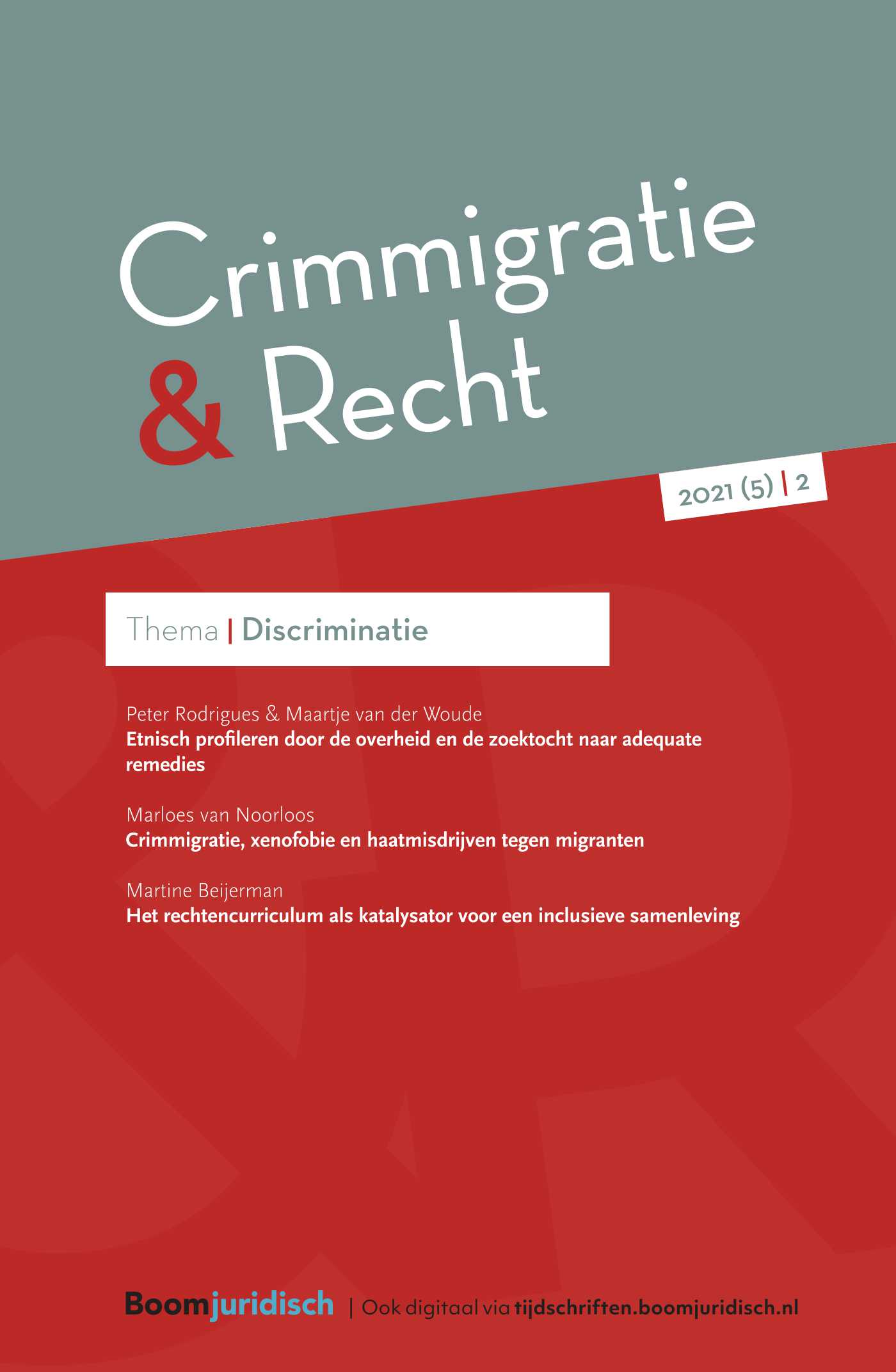|
In 2020, a coalition against ethnic profiling established a taskforce to handle complaints of people who have experienced ethnic profiling by the Dutch Royal Military Police and/or the Dutch Customs at airports. In this article, 31 complaints that have been received between February 2020 and March 2021 have been analyzed in a qualitative way. The results show that when people with an ethnic stigma are not informed (properly) about why they have been selected, stopped and searched, and treated as suspects instead of false positives, they feel racially profiled, yet take little or no further action in addition to the complaints. |


Crimmigratie & Recht
Over dit tijdschriftMeld u zich hier aan voor de attendering op dit tijdschrift zodat u direct een mail ontvangt als er een nieuw digitaal nummer is verschenen en u de artikelen online kunt lezen.
| Redactioneel |
De EU in crisis: grenspraktijken en de ondermijning van fundamentele waarden |
| Auteurs | Marloes van Noorloos |
| Auteursinformatie |
| Artikel |
|
| Auteurs | Abdessamad Bouabid |
| SamenvattingAuteursinformatie |
| Artikel |
Vrijheid de uitzondering, beperking de regel: de strafbaarstelling van het verblijven in een door een terroristische organisatie gecontroleerd gebied |
| Trefwoorden | Terrorisme, Strafbaarstelling, Uitreizigers / Syriëgangers, Vrijheid van verplaatsing, Vrijheid van meningsuiting |
| Auteurs | Tom Faber en Marloes van Noorloos |
| SamenvattingAuteursinformatie |
|
This article deals with the legislative proposal in the Netherlands to criminalise staying (without permission) in an area controlled by a terrorist organisation. The discussion surrounding the proposal is focused, amongst other things, on possible exemptions for journalists and providers of humanitarian assistance. This article analyses the newest version of the proposal in light of the rights to freedom of movement and freedom of expression. |
| Artikel |
De randen van het bestuursrechtOver isolerende strafmaatregelen in vreemdelingenbewaring en effectieve rechtsbescherming |
| Trefwoorden | Immigration detention, Isolation, Punitive measures, Access to legal protection |
| Auteurs | Femke Zeven |
| SamenvattingAuteursinformatie |
|
Migrants who must leave the Netherlands are often detained in Dutch detention centers before their expulsion. Migrant detainees fall under the same criminal laws and authorities as persons incarcerated under Dutch criminal law. This means that migrants can be put in isolation cells, for example for refusing a shared room. This article describes the circumstances in the detention centers, and it makes an analysis of European and Dutch case law on the treatment of migrant detainees, specifically in cases of isolation. Considering articles 3, 5 and 8 ECHR and article 47 of the EU CFR, this is problematic, and access to legal protection seems to be too limited for migrant detainees. The article concludes by stating the necessity for a new legal framework, and for more substantive judicial reviews in cases of the isolation of migrant detainees. |
| KunstBeeld |
(Un)tangled |
| Auteurs | Anne Schaarschmidt en Anne Jonker |
| Auteursinformatie |
| Jurisprudentie |
Overzicht Jurisprudentie september 2021 t/m februari 2022 |
| Jurisprudentie |
Annotatie LangIs hulp aan asielzoekers strafbaar? Annotatie bij arrest van Hof van Justitie (Grote Kamer) van 16 november 2021, zaak C-821/19 |
| Auteurs | Marq Wijngaarden en Frederieke Dölle |
| Auteursinformatie |
| Wet- en regelgeving |
Overzicht Wet- en regelgeving september 2021 t/m maart 2022 |

